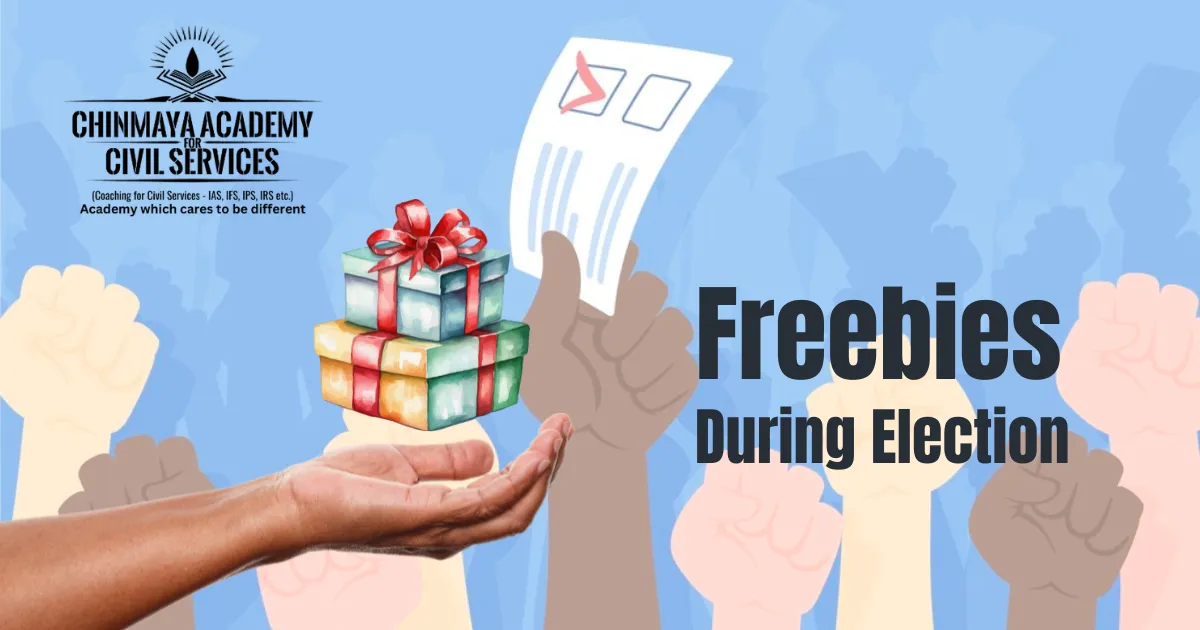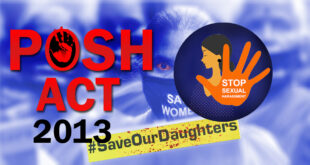
The word freebie is an informal word used to refer to things given out for free or without payment by any organization, company or a state to gain the receiver’s support or favour.
Constitutional Standpoint
The Directive Principles of State Policy (DPSPs) envisions a welfare state which makes basic amenities available and accessible to all. While Article 282 of the Constitution provides that the Union or State may make any grants for any public purpose.
PROS
- It strengthens the concept of welfare state by providing a certain basic amenity which the weaker section could not afford otherwise. Thus, it acts as a positive step towards achieving equilibrium in society.
- It acts as shock absorbers by facilitating growth of marginalized sections in a society, where capital otherwise gets concentrated in the hands of elites.
CONS
- The number of freebies in election manifesto dramatically determines the vote banks. It exerts undue influence over the electorate and thereby hinder the constitutional mandate of free and fair election under Representation of People Act, 1951.
- On ground reality reflects that freebie often tantamount to bribery and misuse of tax-payers’ money
- Further, a culture of freebies and cradle to grave welfare state does not encourage parties to pursue appropriate economic policies aimed at long term development and fiscal stability.
- Irrational freebies have shown to disrupt state finances in the long run and may even push state towards insolvency. A recent article by RBI stressed that a widening gap between state revenue and expenditure was exacerbated by an increase in freebies offered by State governments. In the 2021-22 financial year alone, State governments’ expenditure on subsidies grew at 11.2%.
Previous case judgement
S.Subramaniam Balaji vs Tamil Nadu judgment
- Supreme Court held that making promises in election manifestos do not amount to a ‘corrupt practice’ under Section 123 of the Representation of People Act.
- SC empowered ECI to restrict a party if its manifesto fails to provide a rational nexus between the particular promise and its mobilization.
- This led to addition of a new chapter to the model code of conduct that parties should avoid pre-election promises which affects the informed decision-making and exerts an undue influence on the electorates.
- It also stated that only those promises should be made which are intended to be fulfilled as welfare measure after gaining power.
Recent context: Freebies in Electoral Democracy and Welfare State case
Ashwini Kumar Upadhyay v Union of India
The Supreme Court is hearing challenges against the practice of offering and distributing freebies during election campaigns. The Court’s decision will determine how political parties contest elections in India.
The petition seeks to add a condition to the Election Symbols Order, 1968, barring political parties from promising or distributing ‘irrational freebies from public funds before elections.’ The proposed provision will also de-register parties that distribute such freebies.
Further, the Election Commission of India (ECI) has filed an affidavit stating that freebies are part of policy decision and thus beyond the scope of its regulation. They insisted that it was the voters’ duty to assess the freebies’ financial viability and effect on the economy.
Key issues to be addressed
- Does promising freebies amount to bribing voters?
- Are all freebies wasteful, or can some be considered social welfare schemes?
- What kind of election promises amount to inefficient utilization of public funds?
- Who decides whether a party is using funds for a ‘public purpose’?
Recommendations
- The extent of freebies provided must be decided on the basis of governments’ fiscal space.
- A clear distinction needs to be made between expenditure on social welfare schemes and irrational freebies offered to influence voters.
- Political parties must strike a balance between fiscal deficit and welfare spending when making pre-election promises.
- For combating irrational freebies, policy-makers and Election Commission must play an active role by putting checks on the activities of political parties.
 Chinmaya IAS Academy – Current Affairs Chinmaya IAS Academy – Current Affairs
Chinmaya IAS Academy – Current Affairs Chinmaya IAS Academy – Current Affairs
